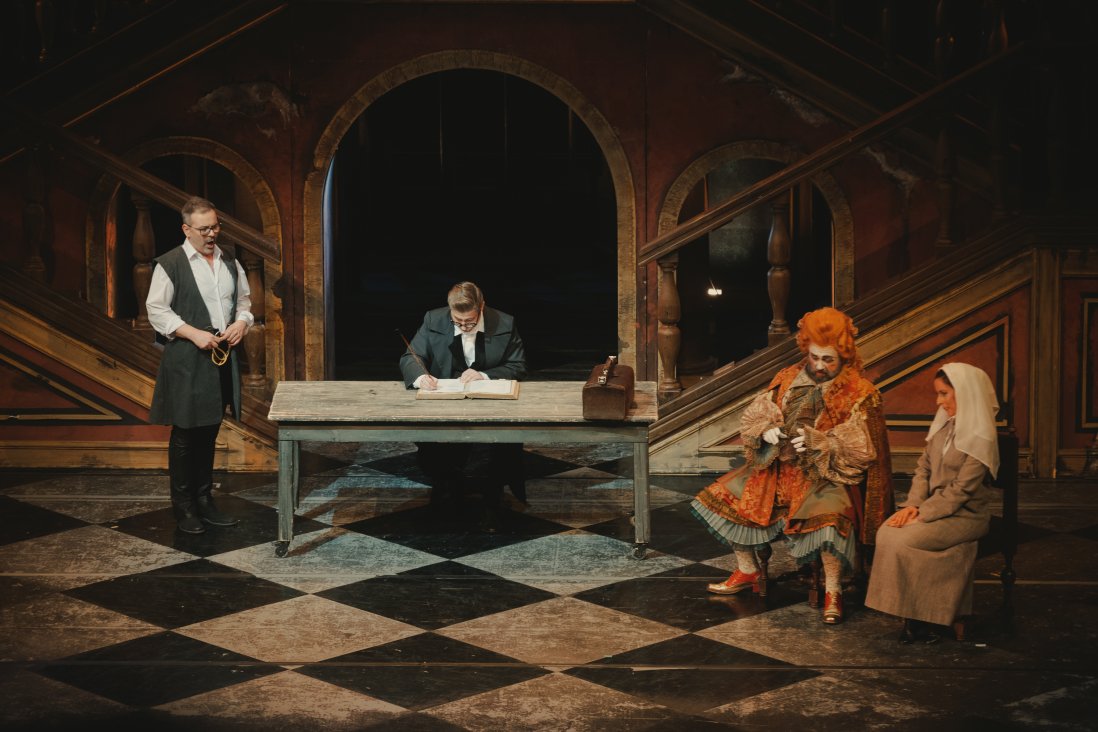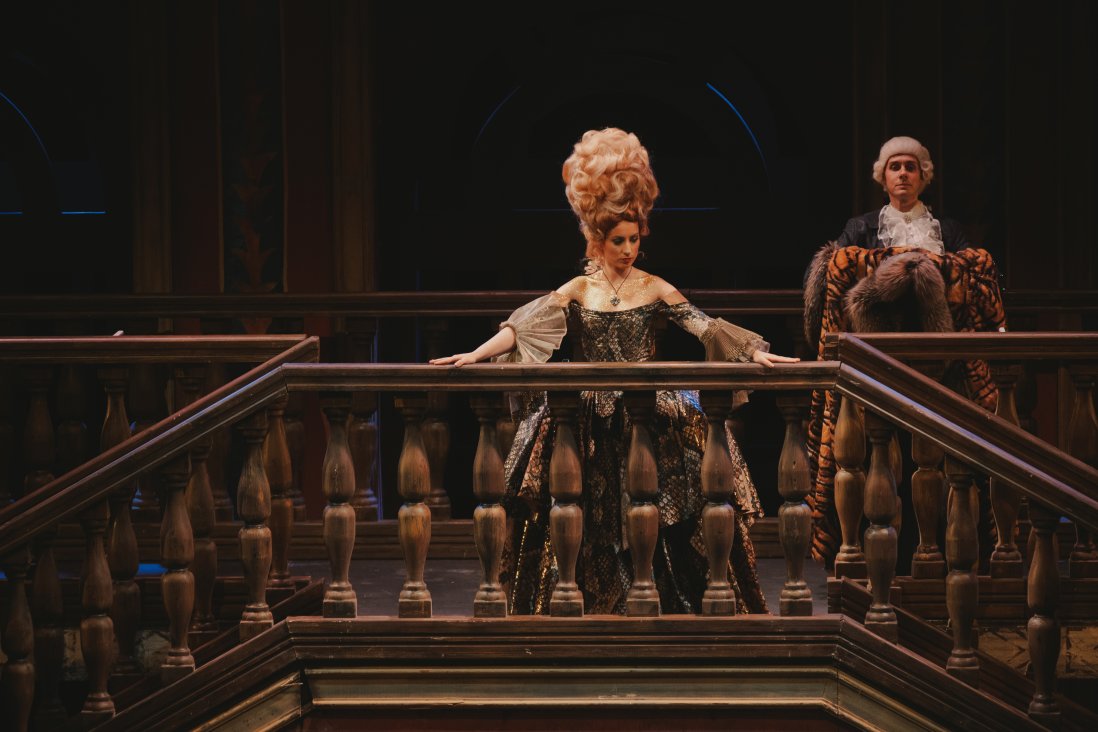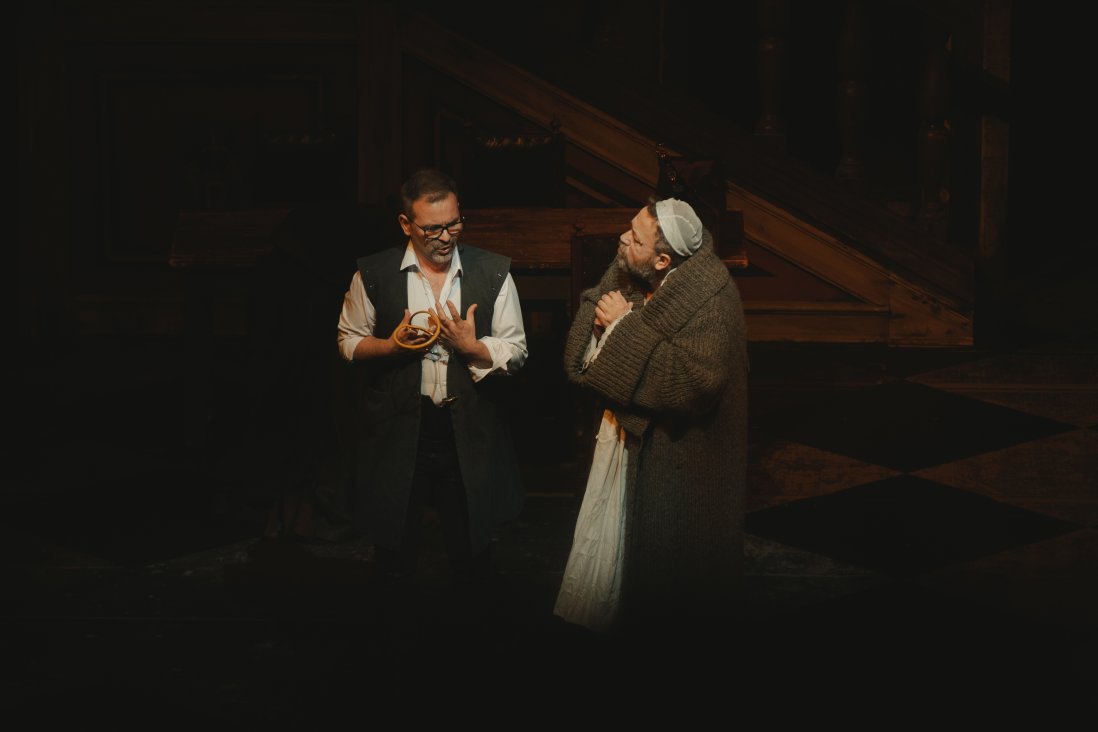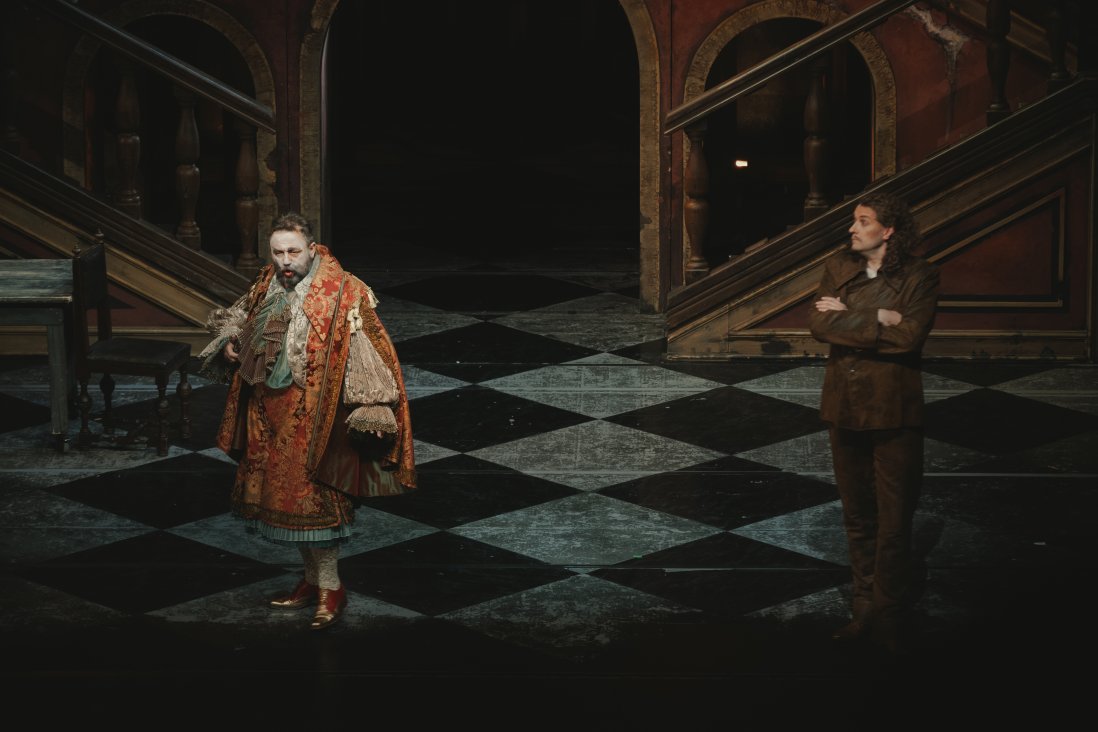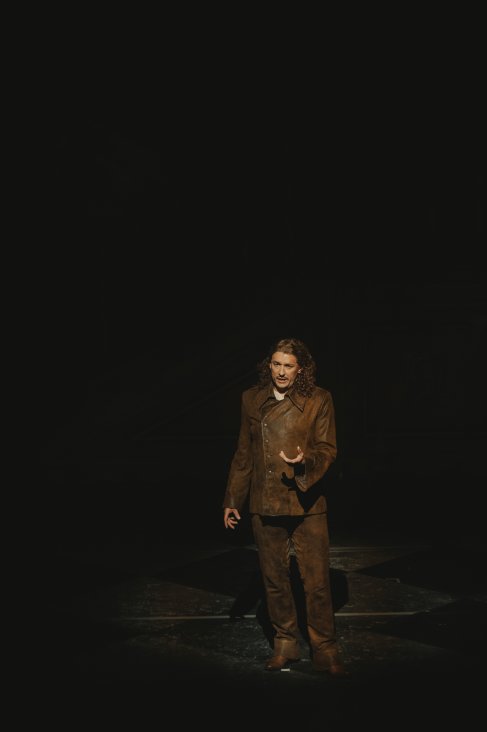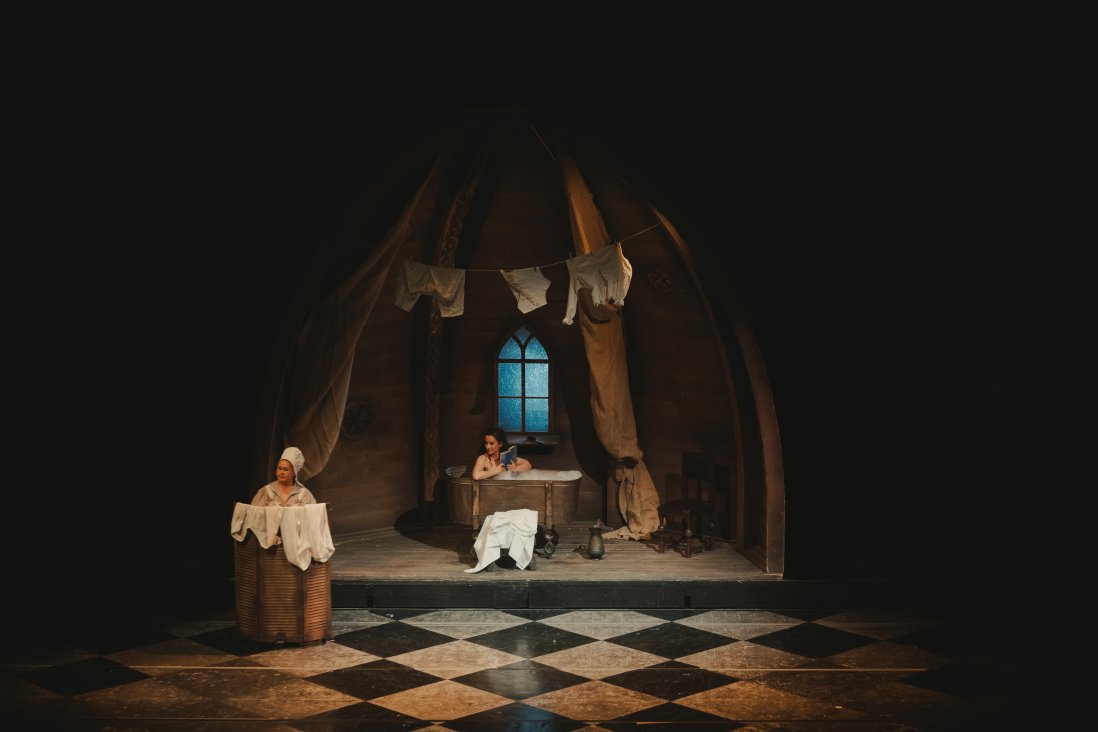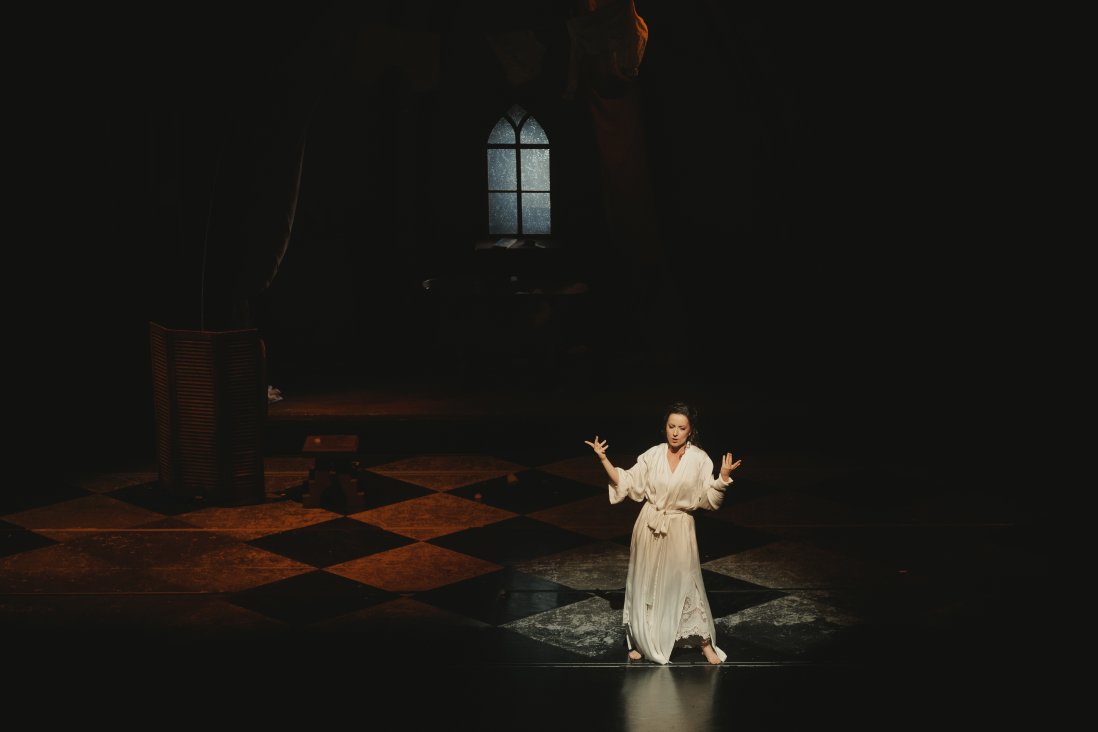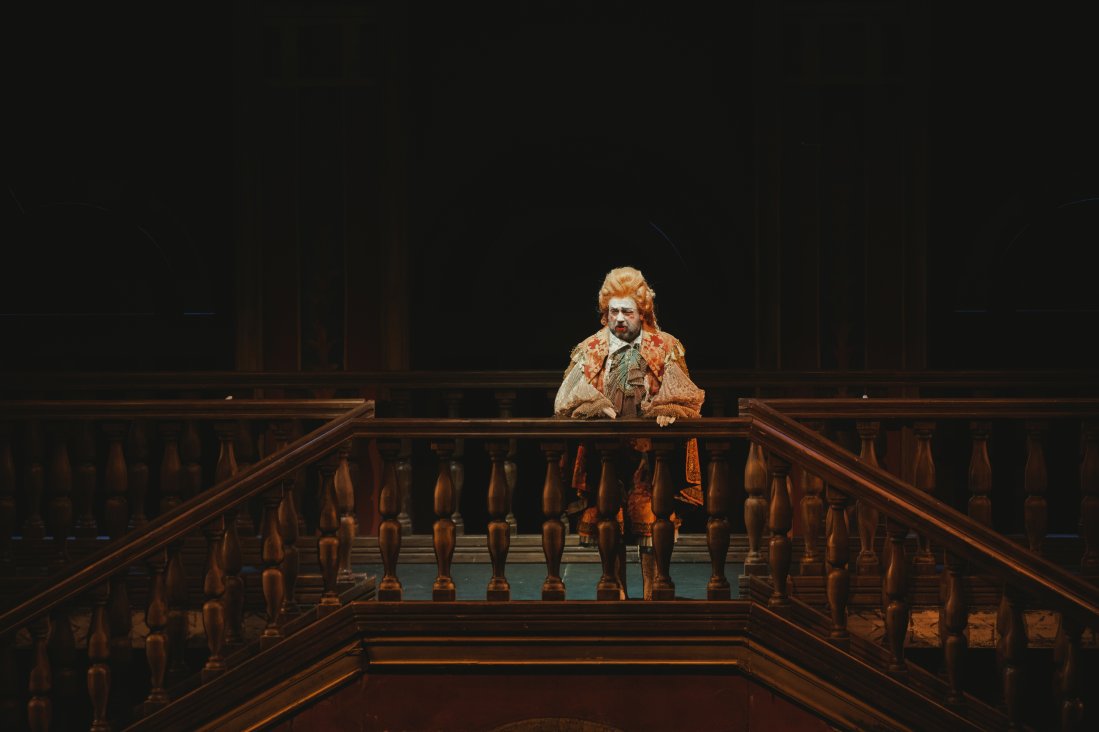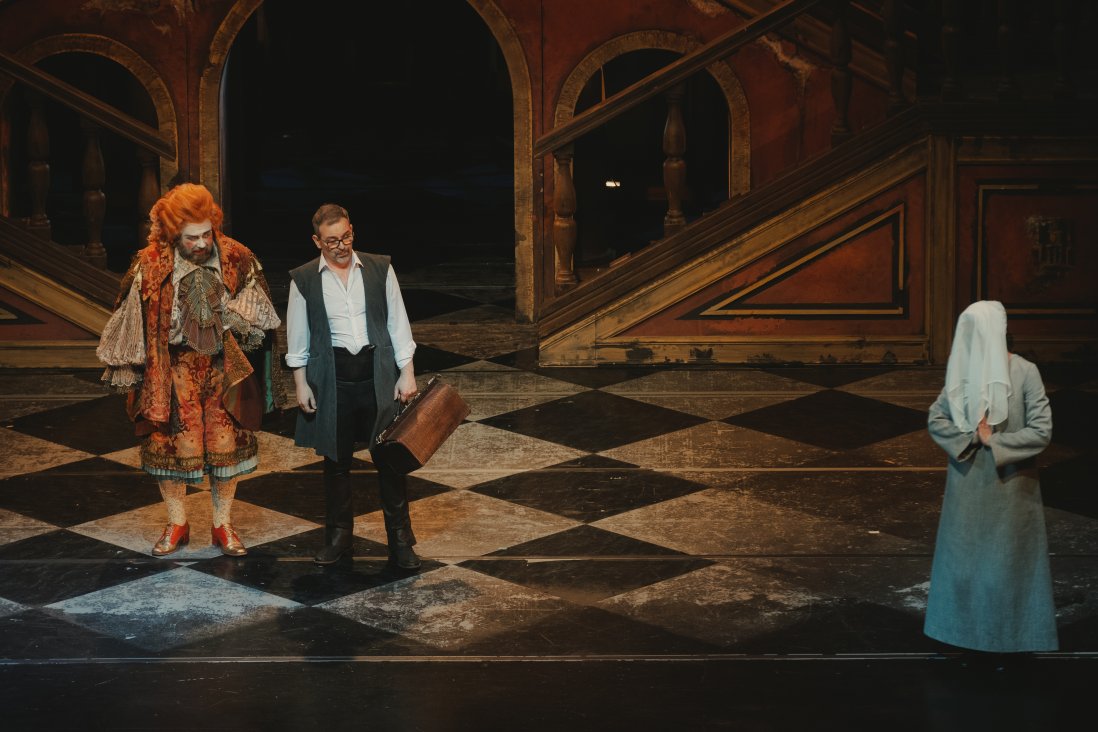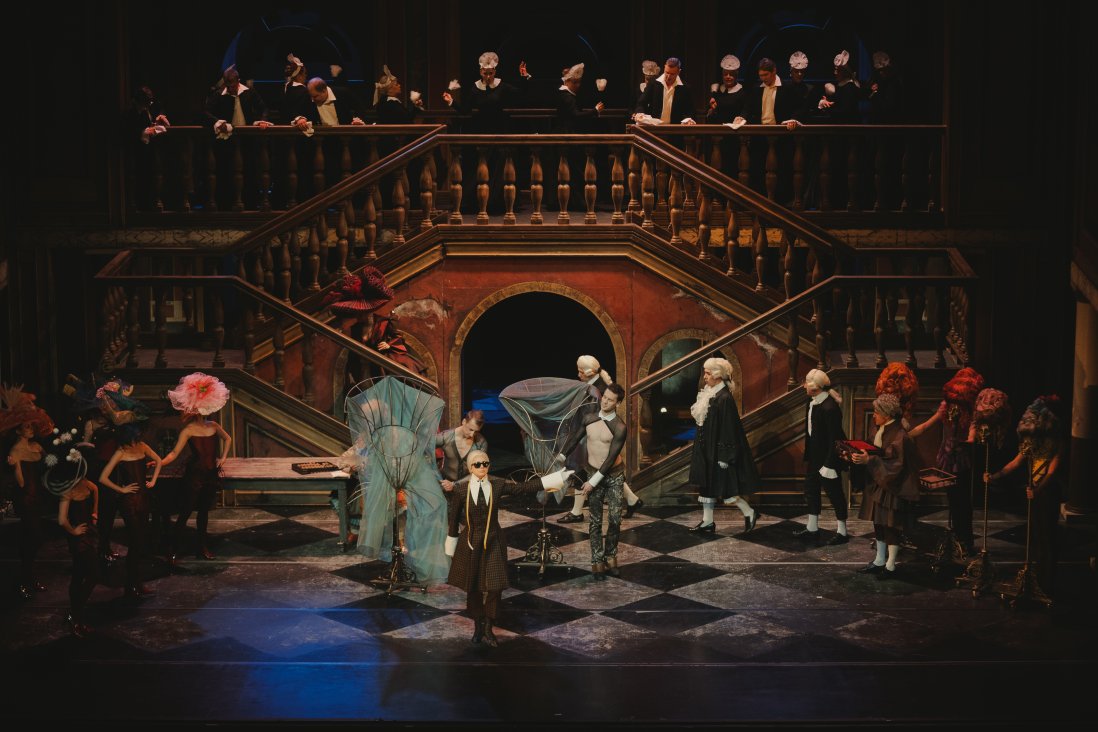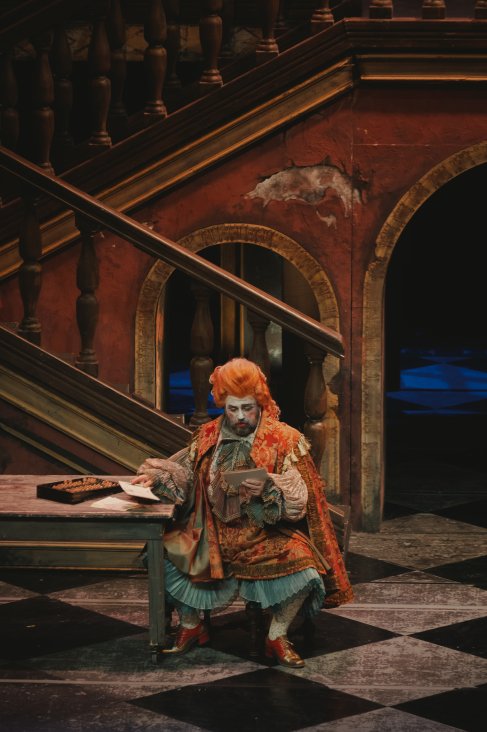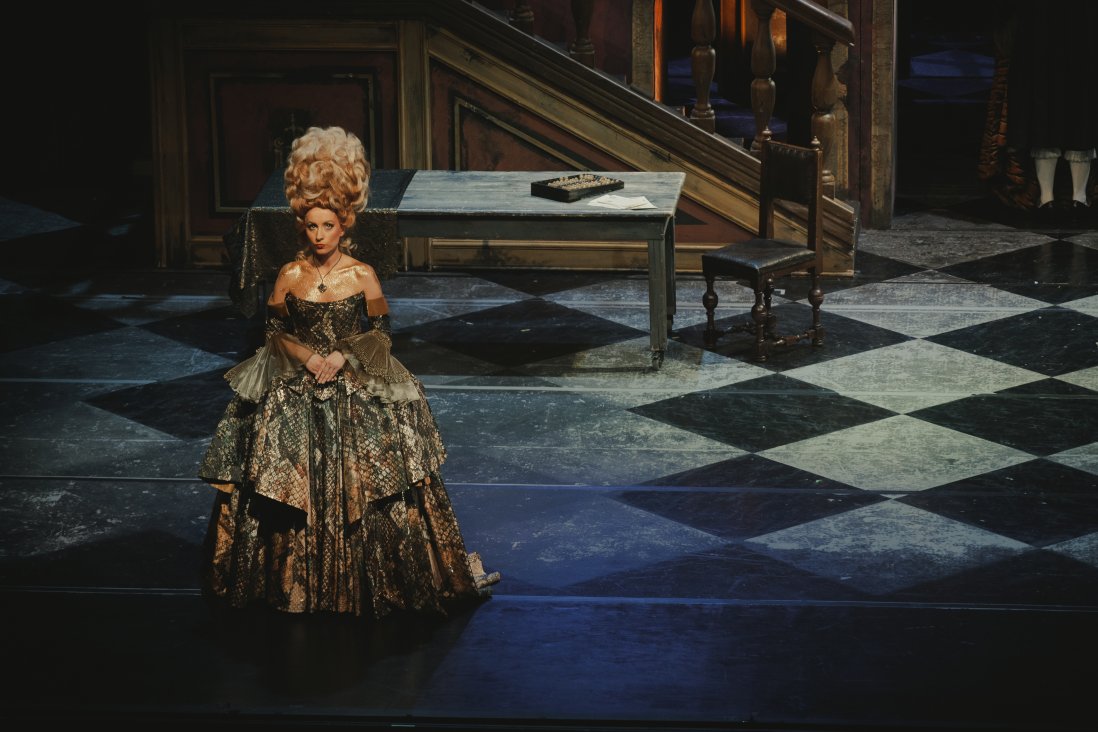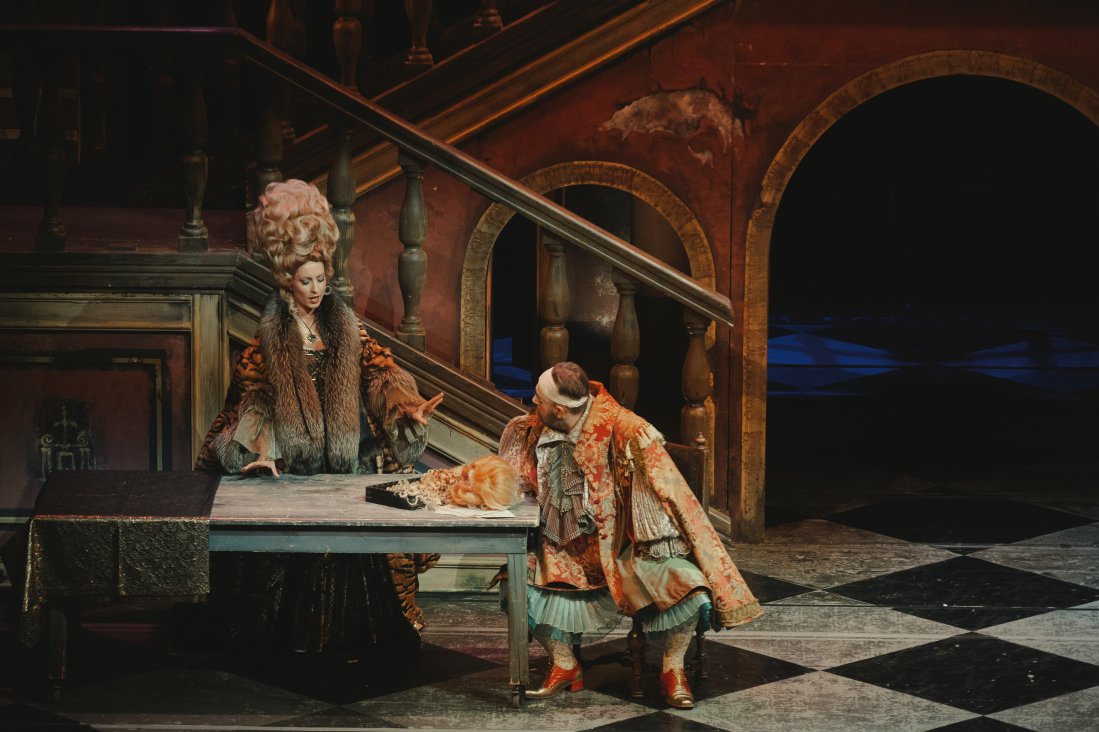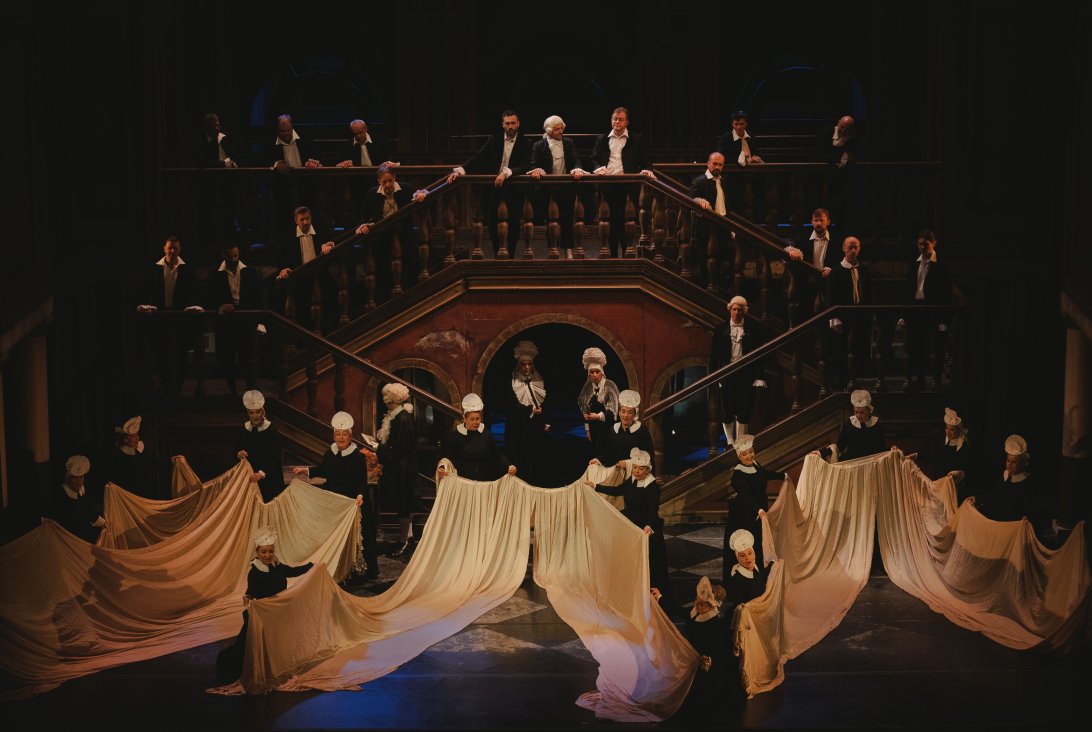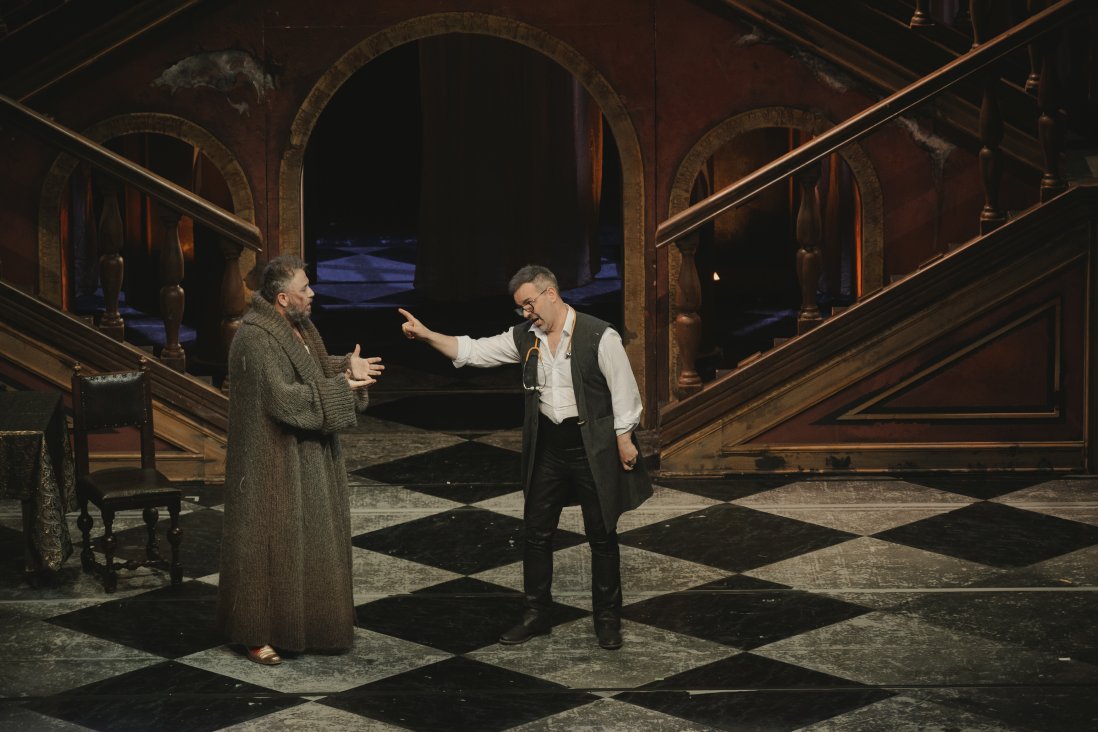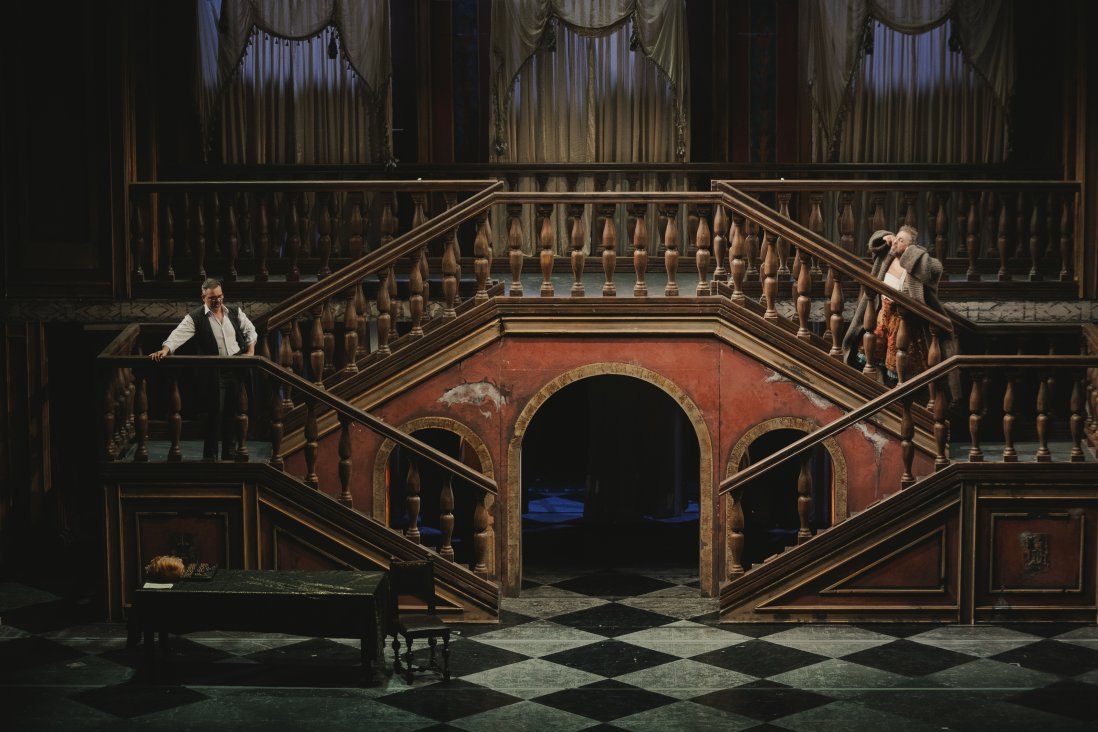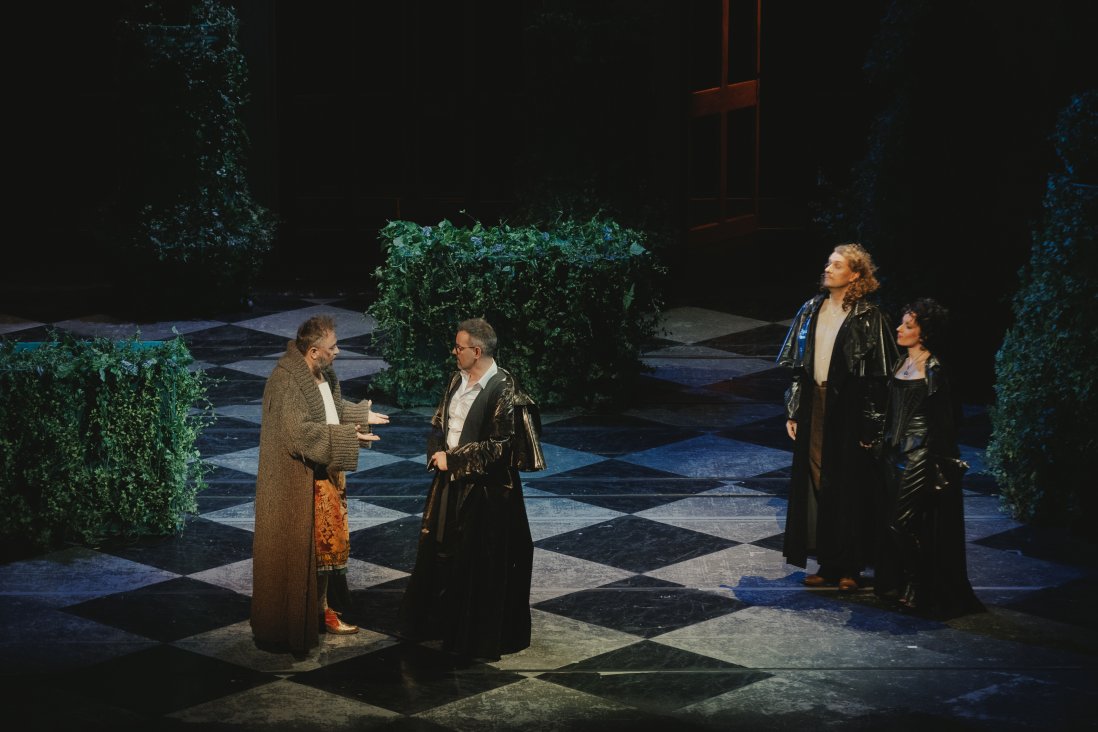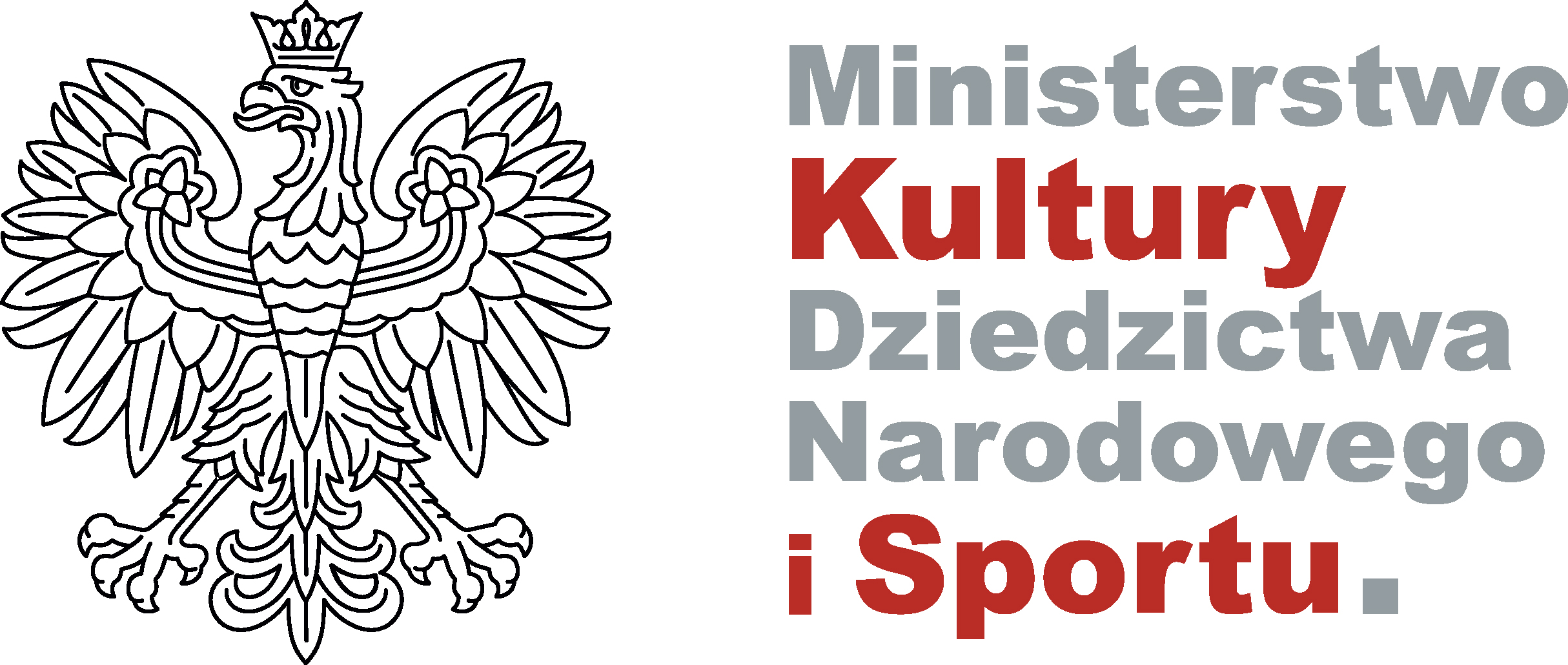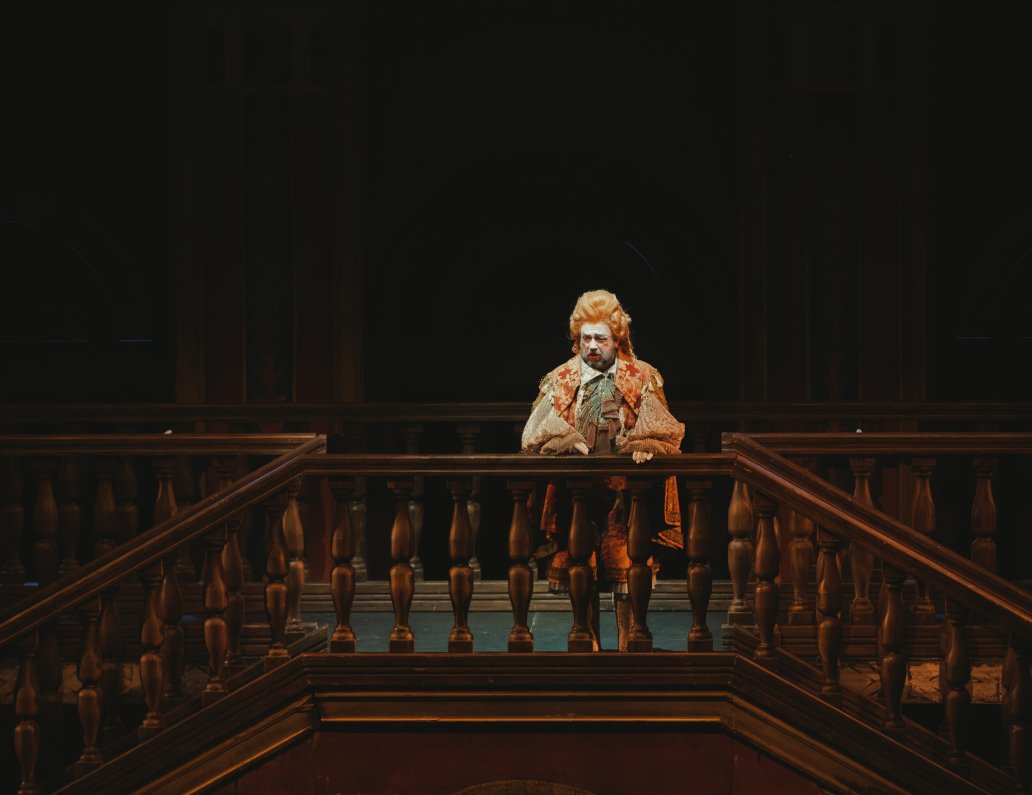
Opera
Don Pasquale
Comic opera in three acts
Gaetano Donizetti
Jerzy Stuhr
Tomasz Tokarczyk
Tomasz Tokarczyk
2
hours
20
minutes
details
information
duration
2
hours
20
minutes
|
1
intermission
composer
Gaetano Donizetti
libretto
Giovanni Ruffini (M.A.)
World premiere
Paris, 3 January 1843
Polish premiere
Warsaw, 1844
premiere at the Krakow Opera
2 December 2016
language
Sung in the original Italian, with Polish and English surtitles
description
It is considered the most outstanding opera of all Donizetti’s 70 coperatic works and the best Italian comic opera ever. It has been called “a jewel of charm, lightness and joyful humour”. This musical treasure is based on a bravado plot, getting the characters involved in risky adventures. As usual money, and of course love, are at stake, though in this case love comes second. This work of unique beauty represents the genre at its best. Jerzy Stuhr plays with the genre, the convention of comic opera, so the production is sheer fun, the very essence of humour and the stage magic. Participation of one of the most acclaimed comic actors in his staging is a brand mark of his theatrical art.
Poster
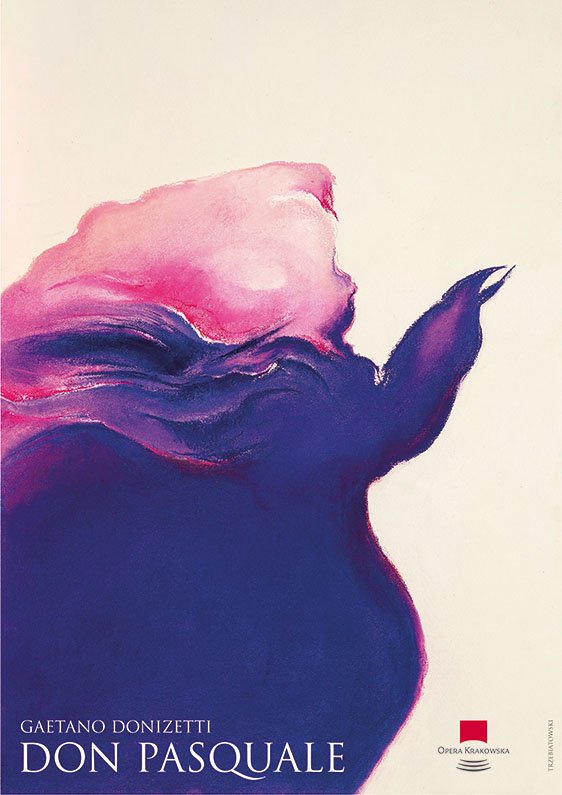
poster by
Janusz Trzebiatowski
producers and cast
producers
Director: Jerzy Stuhr
Music director: Tomasz Tokarczyk
Set designer: Alicja Kokosińska
Costume designer: Maria Balcerek
Stage movement: Jacek Tomasik
Choir master: Jacek Mentel
Lighting designer: Bogumił Palewicz
Assistant music director: Paweł Szczepański
Director’s assistants: Bożena Walczyk-Skrzypczak, Bartosz Buława, Anna Popiel
Costume designer’s assistant: Magdalena Kut
Chorus master’s assistant: Joanna Wójtowicz
Stage managers: Justyna Jarocka-Lejzak, Magdalena Wąsowska
Prompters: Dorota Sawka, Maria Mitkowska, Dagmar Bilińska-Korban
Soloists’ coaches: Kristina Kutnik, Olga Tsymbaluk, Grzegorz Brajner
Chorus accompanist: Wioletta Fluda
Surtitles translated by Dorota Sawka
Music director: Tomasz Tokarczyk
Set designer: Alicja Kokosińska
Costume designer: Maria Balcerek
Stage movement: Jacek Tomasik
Choir master: Jacek Mentel
Lighting designer: Bogumił Palewicz
Assistant music director: Paweł Szczepański
Director’s assistants: Bożena Walczyk-Skrzypczak, Bartosz Buława, Anna Popiel
Costume designer’s assistant: Magdalena Kut
Chorus master’s assistant: Joanna Wójtowicz
Stage managers: Justyna Jarocka-Lejzak, Magdalena Wąsowska
Prompters: Dorota Sawka, Maria Mitkowska, Dagmar Bilińska-Korban
Soloists’ coaches: Kristina Kutnik, Olga Tsymbaluk, Grzegorz Brajner
Chorus accompanist: Wioletta Fluda
Surtitles translated by Dorota Sawka
cast
Don Pasquale | Grzegorz Szostak
Malatesta | Mariusz Godlewski
Ernesto | Adam Sobierajski
Norina | Paula Maciołek
Notary | Jerzy Wójcik
Norina's servant | Agnieszka Czekaj-Janicka (28.04, 30.04), Anna Gajdzik-Krzyżanowska (29.04)
Majordomus | Jacek Wróbel
Servants | Łukasz Zakrzewski, Jarosław Dijuk
Hairdresser master | Wiesław Popiołek (28.04, 30.04), Jerzy Wójcik (29.04)
Milliner | Lidia Pirowska (28.04, 30.04), Joanna Grandys-Wnuk (29.04)
Main Chambermaid | Agata Gondek-Klimek, Jolanta Leśniak
Trio Serenata | Patryk Bała, Marcin Herman, Żaneta Seweryn
Krakow Opera Orchestra, Choir and Ballet
conductor: Vladimir Kiradjiev
Malatesta | Mariusz Godlewski
Ernesto | Adam Sobierajski
Norina | Paula Maciołek
Notary | Jerzy Wójcik
Norina's servant | Agnieszka Czekaj-Janicka (28.04, 30.04), Anna Gajdzik-Krzyżanowska (29.04)
Majordomus | Jacek Wróbel
Servants | Łukasz Zakrzewski, Jarosław Dijuk
Hairdresser master | Wiesław Popiołek (28.04, 30.04), Jerzy Wójcik (29.04)
Milliner | Lidia Pirowska (28.04, 30.04), Joanna Grandys-Wnuk (29.04)
Main Chambermaid | Agata Gondek-Klimek, Jolanta Leśniak
Trio Serenata | Patryk Bała, Marcin Herman, Żaneta Seweryn
Krakow Opera Orchestra, Choir and Ballet
conductor: Vladimir Kiradjiev
ticket
160 zł
120 zł
100 zł
70 zł
60 zł
50 zł
synopsis
ACT I
Scene 1
Don Pasquale, a rich and elderly bachelor, wants to get married to disinherit his nephew Ernesto, who wants to marry against his uncle’s will but cannot do that without his financial support. Pasquale asks his friend Doctor Malatesta to find a suitable bride for him. The doctor says that his own sister, Sofronia will be the best candidate – she is a quiet and modest girl who was brought up in a convent. Ernesto finds out about his uncle’s plans and falls in despair. He gets angry with the doctor whom he suspects of betraying their friendship.
Scene 2
Ernesto’s fiancée, Norina, reads a letter in which Ernesto writes about his uncle’s plans for matrimony. Then Doctor Malatesta comes and explains her that he has assumed the role of a matchmaker for Don Pasquale in order to help her and Ernesto. The doctor comes up with the idea that he will introduce Norina to Don Pasquale as his sister Sofronia. As soon as a fake marriage contract is signed, she Pasquale’s life so miserable that he will agree to anything to get rid of her. In doctor’s company, Norina merrily prepares herself for her role.
ACT II
Ernesto, who doesn’t know a thing about Malatesta’s cunning plan, complains about his miserable fate. Meanwhile the doctor and Norina in disguise come to see Don Pasquale at his place. He is so enchanted with her that he immediately sends for a notary. The fake notary comes, and the doctor dictates him an act according to which alleged Sofronia will be the owner of a half of her husband’s property. Ernesto, to whom Malatesta explained his cunning plan on the side, without hesitation signs the document as a witness. As soon as the contract is signed Norina’s behaviour changes dramatically. She is no longer a modest and meek girl but an insupportable tyrant. She begins to give dispositions which threaten her husband with the imminent financial ruin. Don Pasquale is stonished and horrified at her metamorphosis.
ACT III
Scene 1
Don Pasquale’s home has become a hell. Sofronia tyrannizes him with no pity. She employed a host of servants and ordered expensive clothes from various shops. Now she announces poor Don Pasquale, that she goes out to the theatre and will be back no earlier than at down. However, as she exits, seemingly by accident, she drops a letter which says that instead of going to the theatre she plans to meet her lover in the garden. Don Pasquale is furious, he orders to bring him Doctor Malatesta and makes him bitter reproaches. The doctor listens to him calmly and proposes a plan to catch the unfaithful spouse in flagranti, much to Don Pasquale’s satisfaction, which is expressed in a fantastic duet with the doctor.
Scene 2
In the garden Ernesto sings a sentimental serenade, accompanied by a distant choir. Norina comes to him and they both start mooning about their near happiness. Seeing Don approaching Don Pasquale, Ernesto hides between the bushes. Don Pasquale finds Norina alone. He wants her to reveal the name of her lover, but she refuses. So he tells her that she will have to move out because she has just decided to agree for Ernesto’s marriage with Norina and to bring they both to his place. Now Ernesto emerges from behind the trees. The situation clarifies itself. Don Pasquale finds out that Sofronia and Norina is the same person. At first he his astonished and angry, but finally he forgives them for the comedy they played and the story concludes with a happy ending.
Józef Kański
reviews
Mateusz Borkowski, portal natemat.pl, 6 December 2016
Jerzy Stuhr succeeded in making a lively spectacle, without no longueur at all, in which every gesture and every look are well justified, and every singer, including the chorus, knows exactly who and how they should play. I recommend all of you the “Don Pasquale” at the Krakow Opera…
Jacek Marczyński, “Rzeczpospolita”, 5 December 2016
In Krakow comic scenes are built by gestures, even looks, and of course, costumes – on the border of exaggeration, but still a display of good taste (to Maria Balcerek’s design). The stage director does not re-create the past; he plays with it and enriches it, for example by a fashion show on stage, led by an 18th-century Lagerfeld. The rest is up to the performers. Mariusz Kwiecień shows his exuberant personality at its best, signing beautiful bel canto, while at the same time showing how important every word is.
Łukasz Gazur, “Dziennik Polski”, 5 December 2016
It was light, funny and charming. (...) Group scenes of the performance are superb. They are visually ravishing with their choreography which organises action and a stage space”.
Anna Woźniakowska, portal polskamuza.eu, 3 December 2016
Jerzy Stuhr created a spectacle in which he focused on highlighting the comical aspects of the text and situations, without interfering with the singers’ vocal tasks; he created a true theatre. (...) The performance was very well prepared and executed musically. (…) Mariusz Kwiecień as Malatesta was sensational in every respect, Andrzej Lampert, a nephew ill-treated by his uncle, sang beautifully.
Katarzyna Paluch, portal onet.pl, 3 December 2016
Outbursts of laughter in the audience, a standing ovation, encores during the performance, Mariusz Kwiecień at his best, and Jerzy Stuhr – an expert in the comedy repertoire, this in his opera debut. (…) The audience often burst with laughter, practically from the very first notes of the opera. Here we should bow low to the Grzegorz Szostak in the role of Don Pasquale. His character is the most expressive and almost the entire weight of the spectacle depends on him. Szostak created the role not only musically flawless. He was authentic and convincing, showing a distance from himself. (…) Mariusz Kwiecień, in the role of Malatesta, was at his best - his confidence, unfaltering voice and technical perfection were in the top shape. His acting was expressive, soft, subtle and natural. (…) Donizetti’s “Don Pasquale” at the Krakow Opera is a result of the close cooperation between the conductor, Tomasz Tokarczyk, the stage director and the actors who showed the command of the text and acting. As a result we finally received a work based on the word, while at the same time musically up to the highest standards (A big hand for the orchestra, a big hand for the soloists!).
„Dofinansowano ze środków Ministra Kultury, Dziedzictwa Narodowego i Sportu pochodzących z Funduszu Promocji Kultury – państwowego funduszu celowego”
upcoming performances of this genre
/
